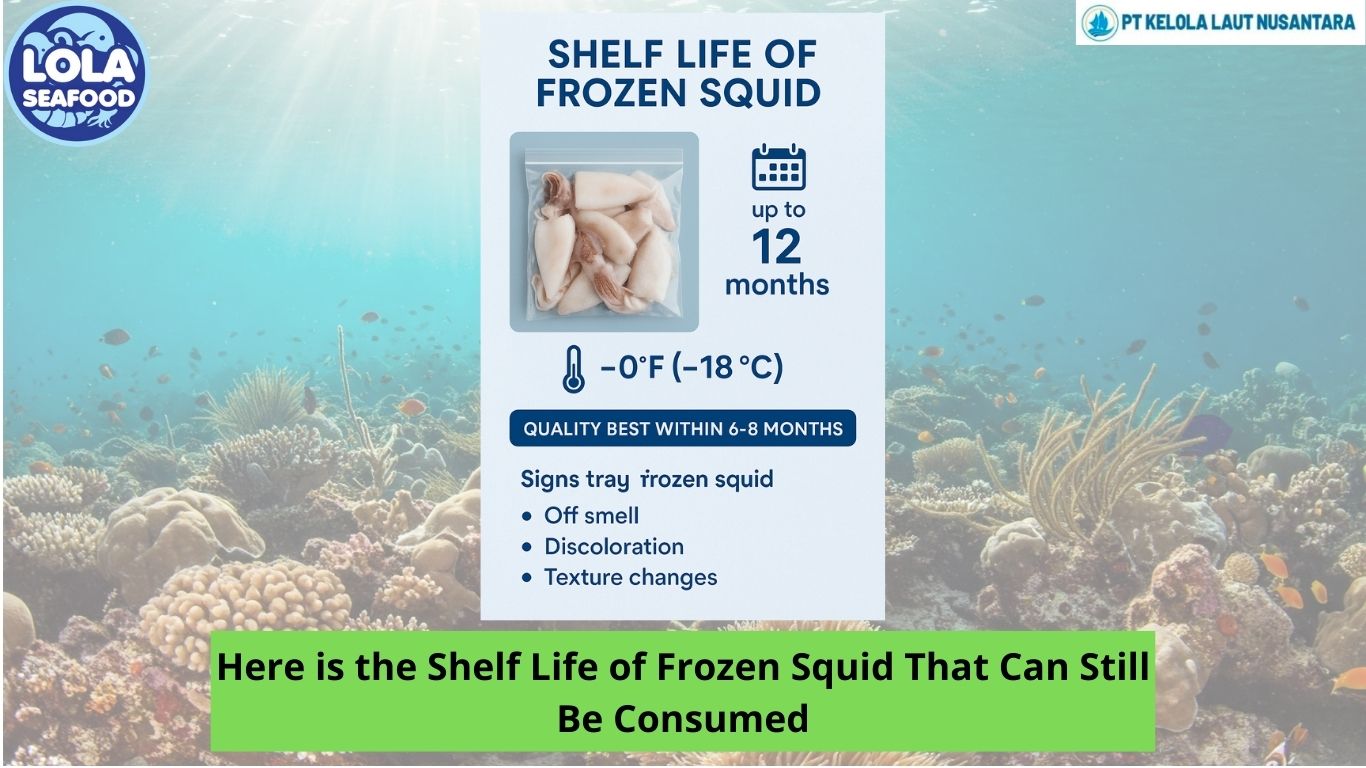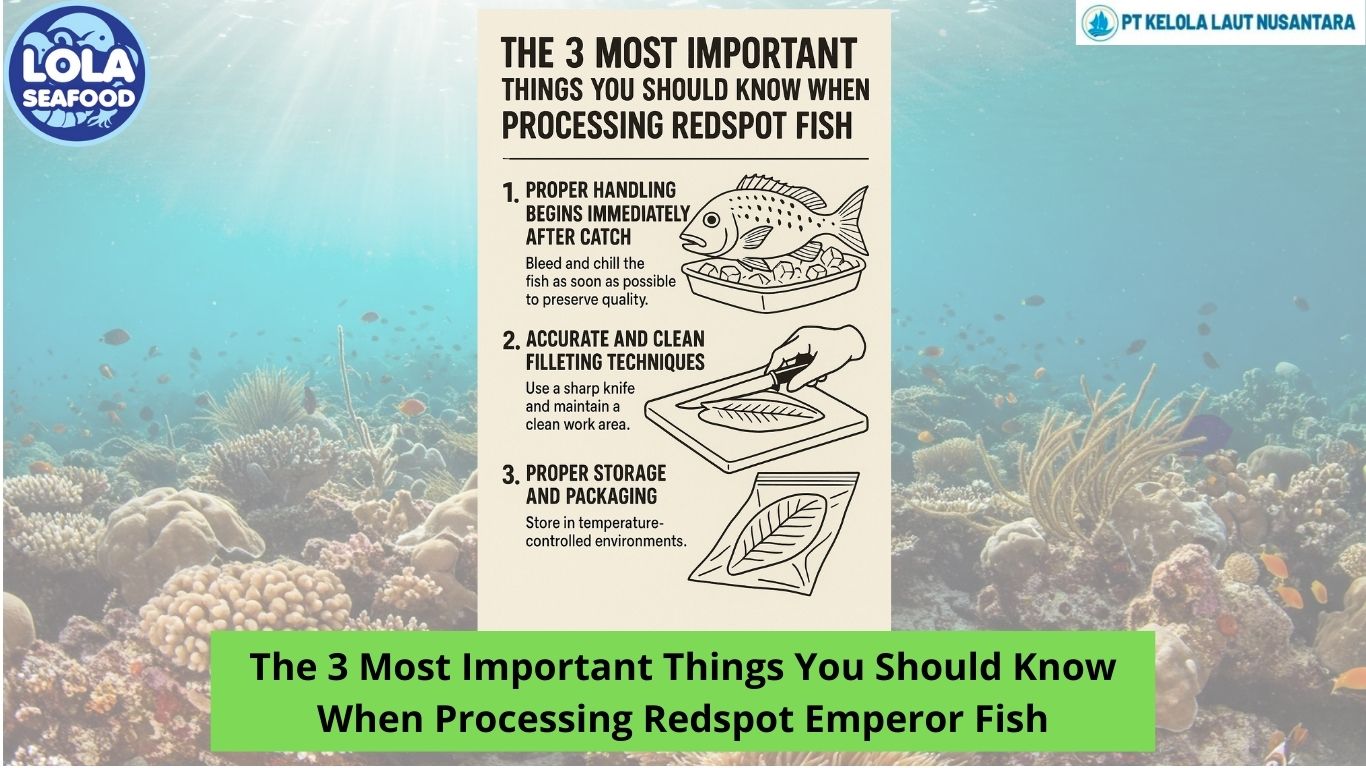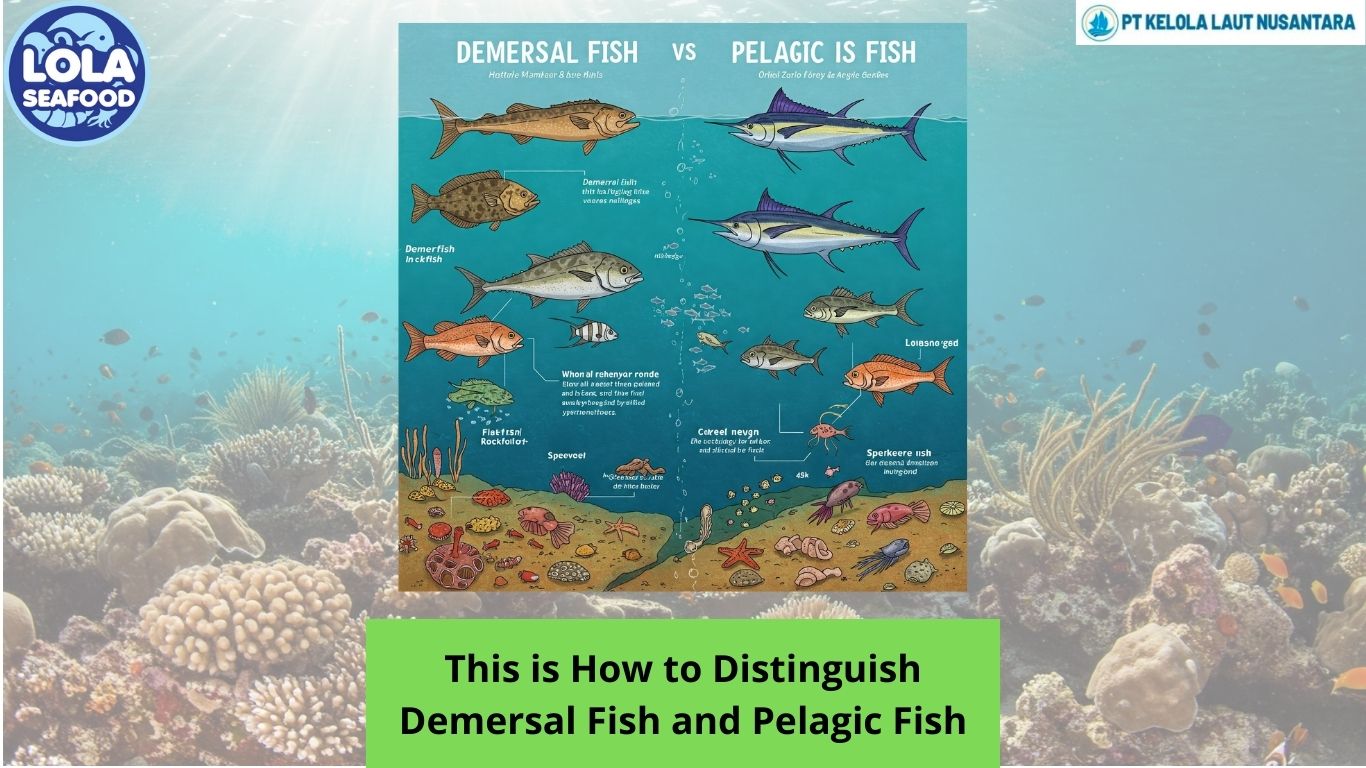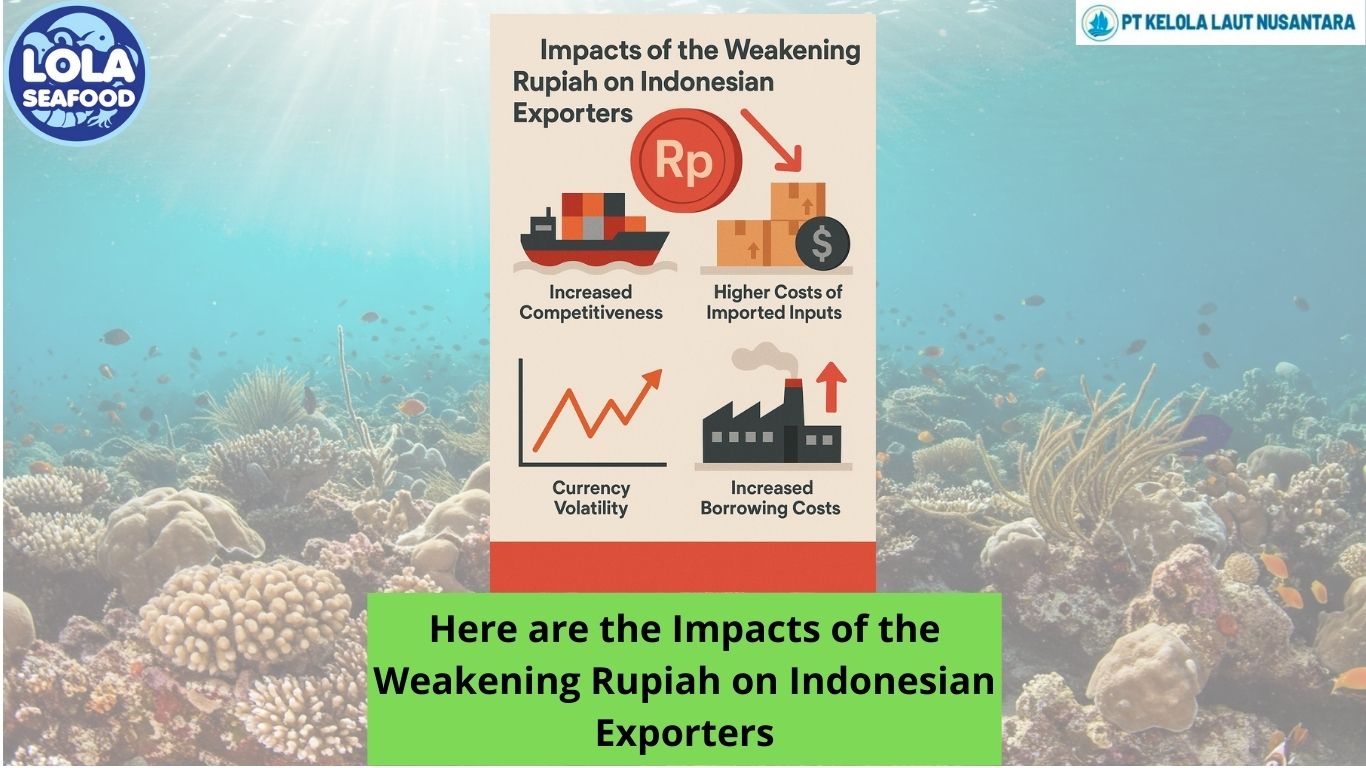Some Things to Know About Octopus Exports in the Global Industry
By. Sofie Thoriq - 31 Dec 2024.jpg)
Kelolalaut.com The global trade of octopus has grown exponentially in recent decades, driven by its rising popularity in cuisines worldwide and increasing recognition of its nutritional benefits. Octopus is not only a delicacy in Mediterranean and Asian diets but has also found a place in the culinary traditions of other regions, thanks to globalization and evolving consumer preferences.
The Appeal of Octopus
Octopus is a versatile seafood option, prized for its tender texture and unique flavour when prepared correctly. It is commonly featured in dishes like Spanish “pulpo a la gallega,” Japanese “Takoyaki,” and Greek grilled octopus. Its high protein content, low fat, and essential nutrients like iron, selenium, and omega-3 fatty acids make it a sought-after choice for health-conscious consumers. This nutritional value, combined with its culinary adaptability, has contributed to a surge in demand for octopus across international markets.
Major Exporting Nations
Countries with abundant coastal waters and established fishing industries dominate the export of octopus. Spain, Morocco, and Mauritania are among the leading exporters. These countries benefit from rich marine ecosystems and strategic geographic locations that facilitate trade.
- Spain: As one of the largest consumers and exporters of octopus, Spain has developed advanced processing and packaging facilities, ensuring high-quality exports to countries in Europe, Asia, and the Americas.
- Morocco and Mauritania: These North African nations are renowned for their thriving octopus’ fisheries. Their proximity to European markets and adherence to international quality standards have positioned them as major players in the industry.
Asian countries like China, Vietnam, and Indonesia also contribute significantly to global octopus exports. These nations cater primarily to regional demand but have increasingly expanded their reach to Western markets.
Key Importers
Japan is one of the largest importers of octopus, driven by its central role in Japanese cuisine. The European Union, particularly Italy, Portugal, and Greece, is another major market, where octopus is a staple in traditional dishes. In recent years, the United States has also shown growing interest, with demand driven by adventurous dining trends and the popularity of Mediterranean and Asian cuisine.
Challenges in the Industry
While the octopus export market is lucrative, it faces several challenges:
- Overfishing: Unsustainable fishing practices threaten octopus’ populations, prompting stricter regulations and calls for sustainable management.
- Climate Change: Rising sea temperatures and changing ocean currents disrupt octopus’ habitats, impacting their availability and migration patterns.
- Supply Chain Issues: Exporting octopus requires cold-chain logistics to maintain freshness, which can be costly and complex, particularly for exporters in developing countries.
- Market Competition: With more countries entering the market, exporters face increasing competition, necessitating innovation in product quality and marketing strategies.
Opportunities for Growth
Despite these challenges, the octopus export industry holds significant growth potential. Sustainable fishing practices and aquaculture development can help meet rising demand while preserving marine ecosystems. Technological advancements in processing and packaging can extend shelf life, enabling exporters to tap into distant markets. Additionally, marketing campaigns highlighting octopus's culinary versatility and health benefits can attract new consumers.
The rise of e-commerce platforms also offers a unique opportunity for smaller exporters to reach global buyers. By leveraging online marketplaces, exporters can connect directly with consumers, bypassing traditional supply chains and reducing costs.
The export of octopus is a thriving global industry, driven by its culinary appeal and health benefits. While challenges like overfishing and climate change pose significant threats, innovation and sustainable practices offer pathways to continued growth. As demand for octopus continues to rise, nations with robust fisheries and strategic trade policies are well-positioned to lead this dynamic market. For consumers, the growing availability of octopus means more opportunities to enjoy this delicacy, fostering a deeper appreciation for the oceans that sustain it.
If youre interested in our Baby Octopus Flower and Baby Octopus Whole Cleaned please do not hesitate to contact us through email and/or whatsapp.

.jpg)
.jpg)
.jpg)




